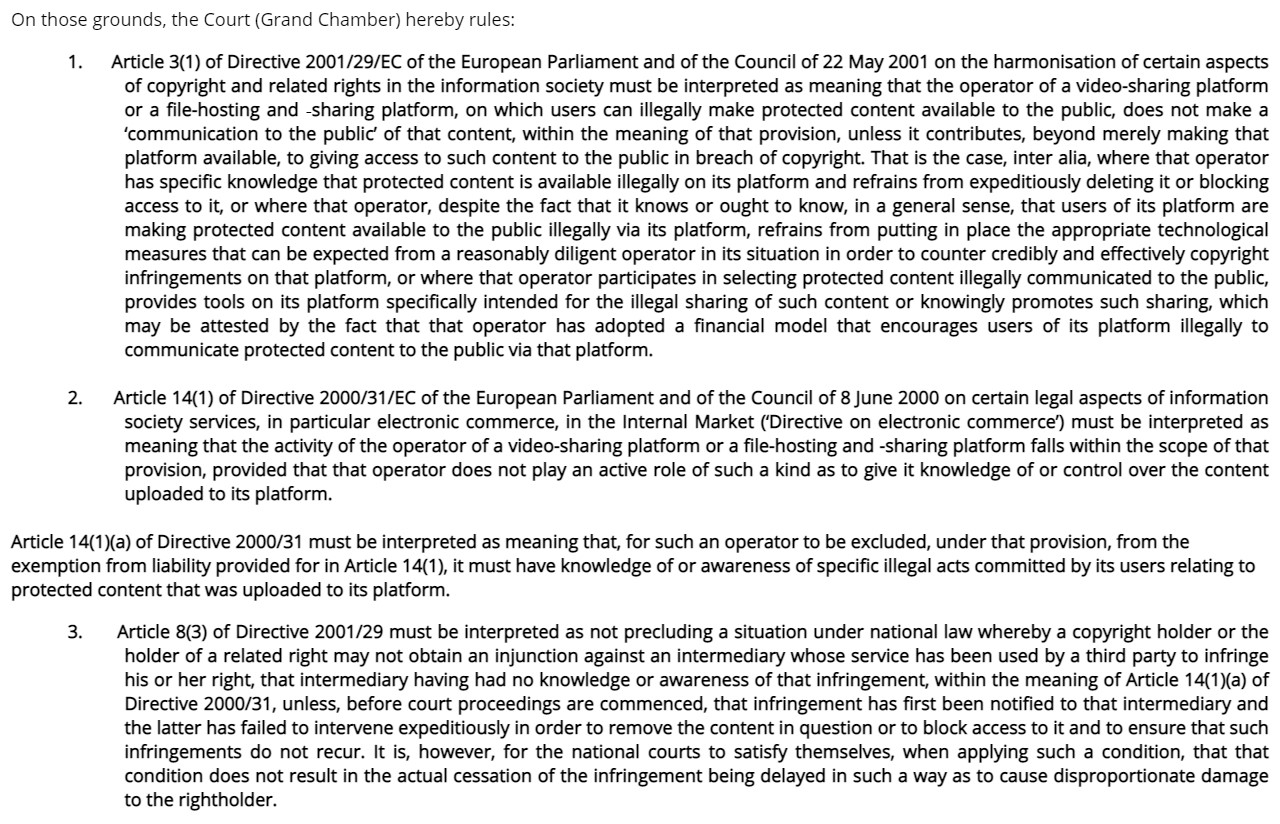 Week in and week out, YouTube’s users upload millions of hours of videos. As with any user-generated content site, this also includes copyright-infringing content.
Week in and week out, YouTube’s users upload millions of hours of videos. As with any user-generated content site, this also includes copyright-infringing content.
The file-hosting platform Uploaded faces similar issues. While it can be used to share legal files, some people choose to use it to share pirated content.
This is a thorn in the side of several rightsholders, who argue that YouTube and Uploaded are liable for the infringing activities of their users. In Germany, this resulted in two lawsuits that remain unresolved but had a breakthrough today.
The first case was brought by music producer Frank Peterson, who sued YouTube and Google for making his music available without permission. In the second case, publisher Elsevier filed a complaint against Uploaded’s parent company Cyando, accusing it of distributing pirated books.
Top EU Court Weighs in on Platform Liability
The German courts referred several questions to the Court of Justice of the European Union (CJEU), requesting guidance. In particular, they asked if, and under what conditions, online services make a ‘communication to the public’ when it comes to pirated files and videos.
There is no question that the uploaders of these files ‘communicate’ to the public. But the copyright holders would like to extend this to YouTube and Uploaded, so these companies can be held liable as well.
After reviewing the questions from the German court, as well as the advice from an Advocate General, the CJEU ruled that, in principle, online services are not directly liable for pirating users.
“As currently stands, operators of online platforms do not, in principle, themselves make a communication to the public of copyright-protected content illegally posted online by users of those platforms,” the Court writes in a press release.
It is worth pointing out that this ruling only applies to old cases. When Article 17 of the new Copyright Directive (“upload filters”) is implemented into local laws, the outlook may change.
Communication to the Public
This is good news for YouTube and Uploaded, but the Court also clarified that there are situations where user uploads can be seen as a communication to the public. For example, when a service contributes to infringing activity by doing more than merely making its platform available.
“That is the case, inter alia, where that operator has specific knowledge that protected content is available illegally on its platform and refrains from expeditiously deleting it or blocking access to it,” the CJEU writes in its judgment.
There are more situations when a service can be seen as directly communicating pirated content to the public. For example, when a service knows that users upload pirated content, but fails to take “appropriate technological measures” to stop this.
The same applies when a service “provides tools on its platform specifically intended for the illegal sharing of such content or knowingly promotes such sharing”. That’s also the case when the platform has a “financial model that encourages users” to share infringing content.
Liability Exemption
The CJEU further concluded that online services can benefit from a liability exception as long as they have a passive role, and are not aware of any specific infringing activities.
“The Court finds that such an operator can benefit from the exemption from liability provided that it does not play an active role of such a kind as to give it knowledge of or control over the content uploaded to its platform.”
Injunction
Finally, the CJEU concluded that current EU law doesn’t prevent national courts from denying an injunction against the operator of a service who is not aware of any infringing activity. If a platform is notified of illegal content but refuses to take action, injunctions should be available.
The judgment, which is available in full here, provides more guidance for courts that have to rule on liability issues. However, as the full answers below show, it still leaves plenty of room for interpretation.






